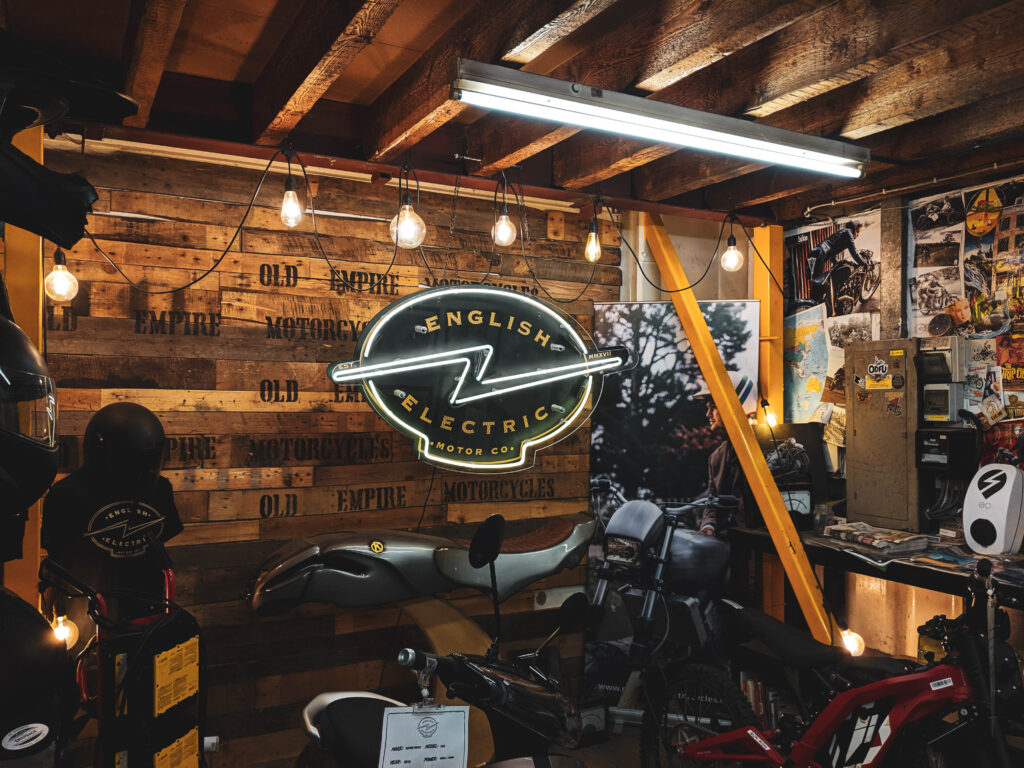The short answer is yes there are some electric motorcycles that are street legal in the UK.
In general Electric motorbikes are becoming more popular every year, this is fueled by the rise of people who are wanting to join the EV revolution. Many people have already shifted over to electric cars and are now wanting to shift over to an electric motorbike. Popular brands such as Zero Motorcycles and Energica have been around for a long time now, creating high performance sport bikes. As the popularity of electric motorcycles grow, so does the question on whether they are road legal in the UK, as with a standard ICE motorcycle the same questions need to be asked.
What defines an electric motorcycle?
Typically an electric motorbike can be defined using the following methods.
Power Source
Electric Motorcycles are primarily powered by rechargeable batteries and uses an electric motor as opposed to an internal combustion engine (also known as ICE)
Legal Classification
In the UK we have specific power or speed thresholds in order to assist us with determining a motorcycle. For example, an electric 2 wheel vehicle is classified as a motorcycle in the event that its motor has a continuous rated power exceeding 250 watts (0.25 kW). While on the speed side, if a vehicle can exceed 15.5 mph (25km/h) using its own motor power then it is classified as a motorcycle.
Electric Bicycle Category
To be classified as an electric bicycle instead of a motorcycle, the vehicle must have:
- A maximum power output of 250 watts
- Only provide electric motor assistance up to 15.5 mph (25 km/h)
- Require pedaling in order to activate the motor
L1e-A Powered Cycle Category
An L1e-A covers low powered electric cycles that exceed the EAPC limits but are not as powerful as a moped, to be clarified as so an EV must:
- Have a maximum continuous rated power greater than 250W but not exceeding 1000w
- Have a maximum speed of 15.5mph (25 km/h)
In terms of how this category is treated, an L1e-A category vehicle is treated similarly to mopeds in terms of regulations.
L1e-B Moped Category
This category covers low powered two wheel vehicles, including electric mopeds. To fall into this category a vehicle must:
- Have a maximum design speed exceeding 15.5mph (25 km/h) but not exceeding 28mph (45 km/h)
- Have a maximum continuous rated power not exceeding 4kW
L3e Motorcycle Category
This category covers full-power electric motorcycles. In order for a motorcycle to fall into this category it must:
- Be a Two-wheel vehicle without a sidecar
- Maximum design speed exceeding 28mph (45 km/h)
- If powered by a internal combustion engine then an engine capacity exceeding 50cc – however in terms of an electric motorcycle, this typically means any 2 wheel vehicle exceeding 28 mph
UK legislation on Electric Motorcycles
Most Recent Legislation Updates:
- Zero Emission Vehicle Mandate
- As of 2024, the UK has implemented a ZEV Mandate, this is in place to encourage manufactures to increase EV production, this includes electric motorcycles
- Green Number Plates
- Electric motorcycles are eligible for a green number plate. These were introduced to increase awareness and promote the uptake of zero-emission vehicles.
- Clean Air and Ultra Low Emission zones
- Electric Motorcycles are exempt from charges in Clean Air Zones and Ultra Low Emission Zones in various UK cities.
- Grants and incentives
- The plug-in motorcycle grant was phased out in 2022, but some local authorities may offer incentives for electric motorcycle adoption
Vehicle Classification
Electric motorcycles are classified under the L3e category the same as traditional motorcycles (this is discussed in the last section) and therefore must comply with the same regulations as conventional motorcycles.
Registration
All electric motorbikes must be registered with the DVLA (driver and vehicle licensing agency), they must also have a valid V5c registration document.
Licensing
In order to ride an electric motorcycle, you must ensure that you hold the correct license for the bike you are wanting to ride. The categories used for electric motorbikes are the same as those used for conventional motorcycles. You can read more about that in our guide: What Electric Motorcycle Can I Ride?
Generally electric mopeds are restricted to 28mph (45kmh). These are seen in the same way as a 50cc petrol moped. As a moped, they can be ridden by any rider 16 or over who has either passed a CBT course or has category AM or P on their existing driver licence. These are classed as L1e-B.
Electric scooters / motorbikes that are capable of speeds in excess of 28mph / 45kmph are classed as L3e-A1. There is no speed restriction however you must be 17 or above and have passed a CBT course OR have a full motorcycle licence.
Insurance
Again, much like a traditional motorcycle, riders must hold a valid motorcycle insurance.
Vehicle Excise Duty (Road Tax) and MOT
Electric Motorcycles are currently exempt from Road Tax, however the MOT rules are the same as a traditional motorbike, an annual MOT is required for electric motorcycles over 3 years old.
Safety Equipment
Riders must wear a helmet that meets safety standards and the motorcycle must have working lights, indicators and a horn.
Noise Regulations
Much like traditional motorcycles, electric bikes need to comply with noise regulations. Luckily, electric motorcycles are considerably quieter than their ICE counterparts.
Intended use
Much like their traditional counterpart many electric motorcycles are built to ride off road and therefore are missing features that would make them road legal. It is always important that if you intend to ride a motorcycle on the road then you make sure that you have a road legal electric motorcycle and hold the correct documentation.
Benefits of Electric Motorcycles in the UK
There are a number of benefits to riding an electric motorcycle in the UK, from the environmental impact to the cost-effectiveness of riding. If you’re unsure on how much you can save, you can check our Fuel vs Electric Cost Calculator and calculate how much you could save.
Popular Electric Motorcycles in the UK
There are many electric motorcycles available in the UK, we would recommend that you check out our range of electric motorcycles, due to the increasing popularity and people always wanting to upgrade we have some fantastic offerings available on our used approved stock.
In summary an electric motorcycle is defined by its powerful electric motor, lack of pedals, higher speed capabilities and its classification under motorcycle regulations. These factors distinguish electric motorbikes from e-bikes.
Are Electric Motorcycles Legal in the UK? The Recap
Legal Status: Electric motorcycles are indeed street legal in the UK, provided they meet specific regulatory requirements.
Classification: Electric motorcycles are primarily classified based on power output and speed capabilities, with different categories (EAPC, L1e-A, L1e-B, L3e) determining their legal status.
Regulations: Electric motorcycles must comply with the same regulations as traditional motorcycles, including registration, licensing, insurance, and MOT testing.
Environmental Benefits: They offer significant environmental advantages, including zero direct emissions and reduced noise pollution.
Cost-Effectiveness: Despite higher initial costs, electric motorcycles can be more cost-effective in the long run due to lower running and maintenance costs.
Government Incentives: While some specific grants have been phased out, electric motorcycles still benefit from various incentives such as tax exemptions and free access to certain urban areas.
Challenges: Range limitations and charging infrastructure remain key challenges, though these are improving with technological advancements.
Market Growth: The electric motorcycle market in the UK is expanding, with an increasing variety of models available from both established and new manufacturers.
Future Outlook: Recent legislation, including the Zero Emission Vehicle Mandate, indicates a supportive regulatory environment for the continued growth of electric motorcycles in the UK.
Rider Requirements: Riders must still meet licensing requirements and adhere to safety regulations, similar to those for traditional motorcycles.
The short answer is yes, some electric motorcycles are legal in the UK.
Electric motorbikes are growing in popularity every year. This trend is fueled by people wanting to join the EV revolution. Many have already switched to electric cars and now want to shift to electric motorbikes. Brands like Zero Motorcycles and Energica have been creating high-performance electric sport bikes for years.
As electric motorcycles become more common, questions about their road legality in the UK arise. Let’s explore what defines an electric motorcycle and the relevant UK regulations.
What defines an electric motorcycle?
- Power Source: Electric motorcycles use rechargeable batteries and an electric motor instead of an internal combustion engine (ICE).
- Legal Classification: In the UK, specific power or speed thresholds determine motorcycle classification:
- If the motor’s continuous rated power exceeds 250 watts (0.25 kW)
- If the vehicle can exceed 15.5 mph (25 km/h) using its own motor power
Vehicle Categories:
- Electric Bicycle:
- Maximum power output of 250 watts
- Electric assistance up to 15.5 mph (25 km/h)
- Requires pedaling to activate the motor
- L1e-A Powered Cycle:
- Power between 250W and 1000W
- Maximum speed of 15.5 mph (25 km/h)
- L1e-B Moped:
- Maximum speed between 15.5 mph (25 km/h) and 28 mph (45 km/h)
- Maximum continuous rated power not exceeding 4kW
- L3e Motorcycle:
- Two-wheel vehicle without a sidecar
- Maximum speed exceeding 28 mph (45 km/h)
- For electric motorcycles, typically any 2-wheel vehicle exceeding 28 mph
UK Legislation on Electric Motorcycles:
- Zero Emission Vehicle Mandate (2024): Encourages manufacturers to increase EV production, including electric motorcycles.
- Green Number Plates: Available for electric motorcycles to promote zero-emission vehicles.
- Clean Air and Ultra Low Emission Zones: Electric motorcycles are exempt from charges in various UK cities.
- Vehicle Classification: Electric motorcycles fall under the L3e category, like traditional motorcycles.
- Registration: Must be registered with the DVLA and have a valid V5c document.
- Licensing: Riders must hold the correct license for the bike they want to ride.
- Insurance: Valid motorcycle insurance is required.
- Vehicle Excise Duty (Road Tax) and MOT: Electric motorcycles are currently exempt from Road Tax. Annual MOT is required for those over 3 years old.
- Safety Equipment: Riders must wear approved helmets, and bikes must have working lights, indicators, and a horn.
- Noise Regulations: Electric motorcycles must comply with noise regulations but are generally quieter than ICE motorcycles.
Benefits of Electric Motorcycles in the UK:
- Environmental impact
- Cost-effectiveness
- Tax exemptions
- Access to certain urban areas
Popular Electric Motorcycles in the UK:
Many electric motorcycles are available in the UK. Check our range of new and used approved stock for options.
In summary, electric motorcycles are legal in the UK when they meet specific regulatory requirements. They offer environmental benefits and can be cost-effective in the long run. As technology advances and infrastructure improves, electric motorcycles are likely to play a significant role in the future of UK transportation.


